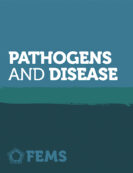Volunteers
We are proud to work collectively with a growing community of microbiologists whose voluntary contributions are helping to put microbiology firmly on the map. We thank and acknowledge volunteers for the great work they have done so far in support of various business and science communication projects.
To hear about volunteering roles sign up to our newsletters, or check the FEMS Opportunities Board.
Below is a list of current and past volunteer projects.
#OnThisDay Project
 The #OnThisDay project aims to assemble a collection of historically important microbiology events for every single day of the year. These events could be interesting discoveries, the dates of seminal scientific publications, the important moments in the lives of famous microbiologists, or anything that would pique the interest of the microbiology community!
The #OnThisDay project aims to assemble a collection of historically important microbiology events for every single day of the year. These events could be interesting discoveries, the dates of seminal scientific publications, the important moments in the lives of famous microbiologists, or anything that would pique the interest of the microbiology community!
The OnThisDay team research these facts and figures and then this important information is be digested into social media content for the purposes of science communication and and public engagement, as well as raising the profile of underrepresented scientists.
Journal Social Media Editors (JSMEs)
The Journal Social Media Editors (JSMEs) are a team of active microbiology researchers working to keep our community up to date about the latest articles and collections from the FEMS journals though the FEMS social media accounts. Each JSME is assigned to one of our journals, and they keep up-to-date with the papers in the latest journal issue.
Their role is to select the papers of most interest to our community and create social media posts on Facebook and Twitter to inform our followers about new research. The JSME team also organize around awareness days, online events, and we help them to develop and share their own science communication work. They receive training, support, and guidance throughout the volunteering commitment to FEMS, as part of our social media team.
Microbiology in Art
 Microbes are all around us, including in the arts. Often, however, in mainstream fiction microorganisms are used as a clichéd trope or in an unrealistic way, while contemporary artworks involving microbiology are still being developed or are not known to the broad public.
Microbes are all around us, including in the arts. Often, however, in mainstream fiction microorganisms are used as a clichéd trope or in an unrealistic way, while contemporary artworks involving microbiology are still being developed or are not known to the broad public.
In a new section for the #FEMSmicroBlog, called #MicrobiologyInArt, we want to present how microbiology enters the arts. We will cover virtually all artforms and want to present compelling examples of microbiology in art, and we will discuss how these can raise awareness on microbiology topics, issues, and potentials.
Translation Team
 English is the universal language of science, yet to make a broader impact a local language is often more effective. We recruited a Team of volunteers speaking collectively more than 13 languages. Being all active scientists, they will make sure that no microbiology content will be ‘’lost in translation’’!
English is the universal language of science, yet to make a broader impact a local language is often more effective. We recruited a Team of volunteers speaking collectively more than 13 languages. Being all active scientists, they will make sure that no microbiology content will be ‘’lost in translation’’!
Example of material interesting to be translated into further languages is abstracts of papers, Wikipedia pages, blog entries, or video interviews with renowned microbiologists, and much more. Our volunteers in the Translation Team are thus able with their unique subject expertise and language skills to contribute to increasing literacy and education in microbiology through targeted outreaches.
Past projects
Opportunities Board Team (2016-2019)
The Opportunities Board team consisted of three different taskforce: Events, Jobs, and fighting AMR. They had the aim to search and collect opportunities beneficial for the microbiological community and collate them on our Opportunities Board. Now, the Opportunities Board is self sustaining with curation from FEMS staff.
Wikipedian Taskforce (2018-2019)
 Wikipedia is making a huge impact in increasing the global knowledge pool, yet its relationship with academia and scholarly knowledge can be strained, and researchers are not rewarded for, motivated, or do not have the time to edit Wikipedia. Luckily, this is not true for our volunteers in the Wikipedia Team!
Wikipedia is making a huge impact in increasing the global knowledge pool, yet its relationship with academia and scholarly knowledge can be strained, and researchers are not rewarded for, motivated, or do not have the time to edit Wikipedia. Luckily, this is not true for our volunteers in the Wikipedia Team!
Volunteers edit and create pages on microbiology based on their unique skills and knowledge, thus increasing the corpus of knowledge on Wikipedia as active academic researchers. Being native in languages other than English, they often also translate pages in further languages. They are thus greatly contributing to increase quality, (scientific) accuracy of Wikipedia entries, and literacy in microbiology.
The ALAM Translation Project (2018)
A team with the aim of translating abstracts into Spanish and Portuguese for a collection of recent, influential articles published by Latin American authors in our five journals to strengthen collaboration with ALAM (Asociación Latinoamericana de Microbiología a.k.a. Latin American Association of Microbiology) to create cross-continent synergies ahead of the upcoming ALAM Congress (Santiago de Chile, 13-16 Nov. 2018).
All but one of the FEMS journals are now fully open access (OA), with one journal, FEMS Microbiology Letters remaining a subscription journal with free-to-publish and OA options. Open access is key to supporting the FEMS mission of disseminating high quality research as widely as possible: when high quality, peer reviewed sound science is open access, anyone, anywhere in the world with an internet connection, can read it.








